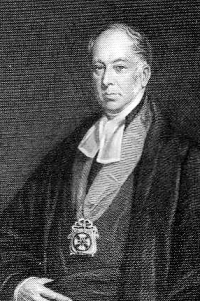Presidents




Since 1847, the SSISI has appointed numerous notable figures from academia and politics as its president: [8] [9] [10]
- Richard Whately (1847–1863)
- Mountifort Longfield (1863–1867)
- Thomas O'Hagan, 1st Baron O'Hagan (1867–1870)
- James Anthony Lawson (1870–1872)
- William Monsell, 1st Baron Emly (1872–1875)
- Jonathan Pim (1875–1877)
- John Lentaigne (1877–1878)
- John Kells Ingram (1878–1880)
- Edward Dillon Mapother (1880–1881)
- William Neilson Hancock (1881–1882)
- Thomas Spring Rice, 2nd Baron Monteagle of Brandon (1882–1884)
- James McDonnell (1884–1888)
- Thomas Wrigley Grimshaw (1888–1890)
- John O'Hagan (1890–1891)
- William Findlater (1891–1894)
- William Huston Dodd (1894–1896)
- Joseph Todhunter Pim (1896–1900)
- James Johnston Shaw (1900–1902)
- William Frederick Bailey (1902–1904)
- Robert Edwin Matheson (1904–1906)
- Arthur Warren Samuels (1906–1908)
- Richard Cherry (1908–1911)
- Thomas A. Finlay (1911–1913)
- Charles Athill Stanuell (1913–1917)
- William Lawson (1917–1918)
- William John Thompson (1918–1920)
- Sir Thomas Molony, 1st Baronet (1920–1924)
- Charles Hubert Oldham (1924–1926)
- James Creed Meredith (1926–1929)
- John Hooper (1929–1930)
- J.C.M. Eason (1930–1934)
- Joseph Brennan (1934–1938)
- Stanley G Lyon (1938–1942)
- George O'Brien (1942–1946)
- Roy C. Geary (1946–1951)
- Joseph Johnston (1951–1953)
- Jim P. Beddy (1953–1956)
- James Meenan (1957–1959)
- William A. Honohan (1959–1962)
- M. Donal McCarthy (1962–1965)
- Patrick Bourke (1965–1968)
- Thomas Kenneth Whitaker (1968–1971)
- Thekla J. Beere (1971–1974)
- Thomas P. Linehan (1974–1977)
- Brendan Menton Snr (1977–1980)
- Robert O'Connor (1980–1983)
- Robert Dennis Collison Black (1983–1986)
- Jerry J. Sexton (1986–1989)
- Kieran A. Kennedy (1989–1992)
- Padraig McGowan (1992–1995)
- Dermot McAleese (1995–1998)
- William Keating (1998–2001)
- Brendan Walsh (2001–2004)
- Aidan Punch (2004–2007)
- Dónal de Buitléir (2007–2010)
- Paul Sweeney (2010–2013)
- John D. FitzGerald (2013–2016)
- Frances P. Ruane (2016-2019)
- Danny McCoy (2019–2022)
- Patrick Paul Walsh (2022–present)